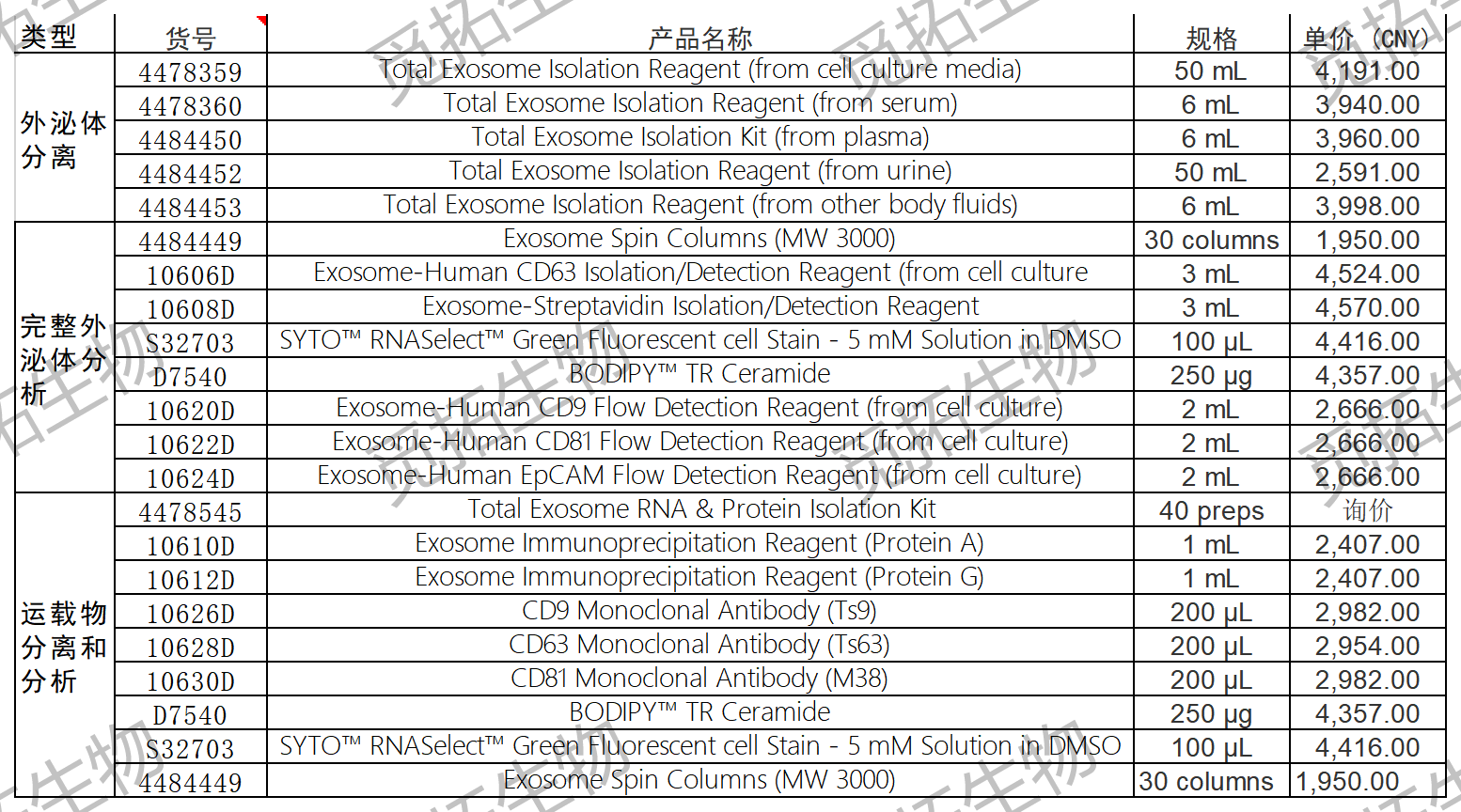CD63 Monoclonal Antibody (Ts63)
|
规格
|
库存
|
统一销售价
|
|
200ul
|
6
|
2982.00
|

产品细节
Applications
Tested Dilution
Publications
免疫印迹 (WB)
Assay Dependent
抗原
MOLT-4 (human T-ALL cell line)
产品详细信息
The Exosome - anti-CD81 antibody recognizes human CD81, a member of the tetraspanin family, and is predicted to react with feline and rabbit. The antibody has been verified for western blotting of cellular and exosomal CD81 antigen, with a molecular weight of ~25 kDa, and used at 2 µg/mL under non-reducing conditions. Other applications may work but have not been tested.
靶标信息
CD81 (TAPA-1, target of anti-proliferative antibody-1) is a member of the tetraspanin family, is expressed on virtually all nucleated cells, but above all on germinal center B cells. CD81 forms complexes with other tetraspanin proteins, integrins, coreceptors, MHC class I and II molecules, and influences adhesion, morphology, activation, proliferation and differentiation of B, T cells. In muscles, CD81 promotes cell fusion and myotube maintenance. CD81 has been also identified as a receptor for the hepatitis C virus. Like members of the tetraspanin family that include CD9, CD37, CD53, CD63, and CD82, CD81 is a cell-surface proteins that are characterized by the presence of four hydrophobic domains. The proteins mediate signal transduction events that play a role in the regulation of cell development, activation, growth and motility. CD81 is a cell surface glycoprotein that is known to complex with integrins. CD81 appears to promote muscle cell fusion and support myotube maintenance. CD81 associates with CD19, CD21, Leu 13, and integrins on cell membrane and acts as a receptor for the envelope protein E2 of chronic hepatitis C virus. Antibodies to CD81 have anti-proliferative effects on different lymphoid cell lines, particularly those derived from large cell lymphomas. CD81 is also localized in the tumor-suppressor gene region and is a candidate gene for malignancies.